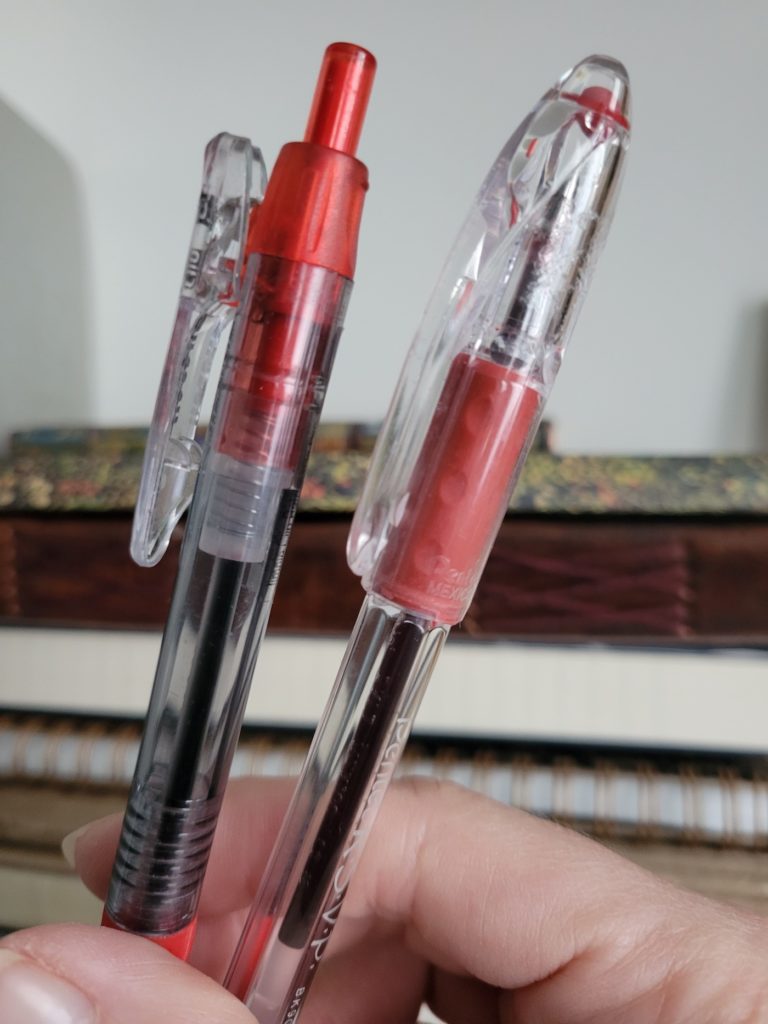-

Photo by Lee Soeburn By Lee Soeburn
What’s the most irksome grammatical quirk you can’t ignore? You know grammar rules are made to be broken, are all subjective, and you recognize style plays a role. But if you catch yourself making this “mistake” or see it in someone else’s work, your heart immediately screams: “ARGH, my nemesis! Foiled yet again!”
TAF got the new year started off right with this fun, conversational ice breaker. The inbox of a Taffy (the nickname of TAF members), is periodically pinged with writing conversations, questions and comments. Most emails involve resource-sharing or event announcements; some are excited threads of congratulations for a recent Taffy publication. TAF builds and maintains community among its far-flung members, many who’ve never met in person, through these emails. Most threads have around five responses, decent engagement for a group of over 150 writers.
The “Quirks that Irk” thread had over 30 responses! Here’s a highlight reel. Let us know if you feel some of these irks and/or share your own in the comments!
“For me, it’s the very real difference between ‘fewer’ and ‘less.’ They are not interchangeable… Here’s an easy way to remember: If you can count something, it’s fewer. If you can’t, it’s less. “I own fewer fish now because my new aquarium holds less water than my previous aquarium.”
– Don V.
“I was taught ‘don’t say in 25 words what you can say in 10.’ I guess this is a lesson in editing. Don’t know if this is less or fewer.”
– Laura A.
“Split infinitives – ‘to energetically drum’ makes my hands hurt because I think it is important ‘to drum energetically.’ … We who love the writing craft spot cracks in the structure all the time.”
– Margaret T.
“My pet peeve is the over use of ‘that.’ In a six-sentence paragraph I was reading the word was used five times. For example, ‘Mary said that she was going to the store.’ Why use ‘that’?”
– Renee F.
“Mine is ‘really.’ ‘It was a really great game and we got home really late.’ (I find this word ‘really’ lame).”
– Mark T.
Kristy S.’s reminder was particularly useful to me in writing this blog post: “Per AP style: Periods and commas always go within the quotation marks. Dashes, semicolons, question marks and exclamation points go within the quotation marks when they apply to the quoted matter only. They go outside when they apply to the whole sentence.”
One member used many exclamation points to decry “passive voice is so pervasive!!” Here’s a good example:
Passive: “I was passed on the winding road by a woman in a light blue sedan.”
Active: “A woman in a light blue sedan passed me on the winding road.”
Meanwhile, mid-level managers better watch out! Some members of the group dislike capitalizing your professional titles. “I don’t care if you’re Chairman of the Board or the Head Janitor, your title is not Upper Case.” Many among TAF begrudgingly accepted that capitalized titles are ubiquitous and here to stay, with one commenter warning: “Woe be to the writer who stands between a c-level executive and their capitalized title!”
The thread was passionate. “Setting me off on an internal rant,” said a Taffy.
The Oxford comma was both beloved and loathed. “I hate an Oxford comma with the fire of a thousand suns,” replied one member, while others admitted to using the controversial comma.
Overall, the group approached the whole grammar quirks subject humorously, “I highly recommend Weird Al’s ‘Word Crimes’,” suggested a Taffy, “for those of you who need a laugh on this subject.” Another member shared the YouTube link to the song with a hopeful request: “Maybe we’ll do a sing-along at Write Now! 2024!”
Don V. referred to these quirks as the grammatical “beach you’re willing to die on.” A fellow Taffy, and full-time editor, Rita L., shared some words of wisdom which provided a more objective perspective to our subjectively irksome quirks thread:
“Verrryyy interesting. I’ve been editing professionally for more than three decades. All I can say is, I want to lie, not die, on the beach. Meet the writer where s/he is. Look at the message; then, clean up the bad grammar but don’t scrub it so hard that the writer’s voice disappears. Rules are meant to be broken. That said, I attack any instance of unclear meaning with an axe.”
This beachy sentiment embodied the overall spirit of the “Quirks that Irk” conversation.
“Exactly! I’d far prefer to lie on one too! I’m sure I’m grammatically (and otherwise) incorrect fairly frequently, and I am thankful for editors who can fix it after the fact! Very thankful!”
– Lee C.
Don’t we all want to lie on the grammar beach together, basking in the many-faceted sun of our collective and individual creativity? Come join our TAF writing community for more metaphorical beaches and fun conversations!
Lee Soeburn is a writer of resumes, grants, and other advancement materials. She also writes memoir, personal essays and fanfiction. She is living a scary human life and chooses, every single day, to write rose-colored prose. Her goal is to humanize our truly dehumanizing experiences. She hopes people will feel seen in her words and that she will create safe spaces to have hard conversations.
919-888-8198
3819 Donna Road
Raleigh, NC 27604
